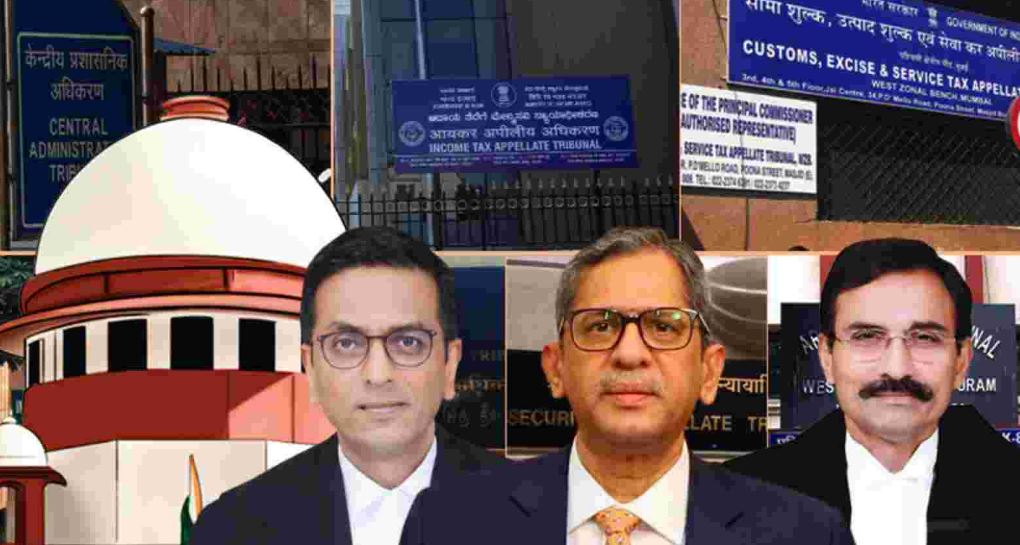New Delhi: The Supreme Court Wednesday questioned the sanctity of recommendations by panel headed by sitting top court judges for various tribunals, as the government has the last say on the matter.
The bench emphasized that it is distressing that names recommended by selection panel, which comprised of sitting top court judges and two senior bureaucrats, were not treated seriously.
The top court gave Centre two weeks, as the last opportunity, to make good the appointments and furnish reasons for names, which were rejected. “Make all appointments. We give you two weeks’ time,” said the bench.
The top court expressed its unhappiness to Attorney General (AG) K.K. Venugopal, representing the Centre, with the way the central government has made appointments to the tribunals.
A bench headed by Chief Justice N.V. Ramana, and comprising justices D.Y. Chandrachud and L. Nageswara Rao, told the AG it did not appreciate Centre’s “cherry-picking” names for appointment after recommendations made by the Search-cum- Selection Committees (SCSC) headed by Supreme Court judges.
“We are very unhappy with what is going on,” noted the chief justice, while questioning the Centre as to why recommendations made by SCSC were not accepted. The SCSC shortlists candidates for appointment and then sends it to the Centre for clearance.
The bench pointed out that the SCSC recommended nine judicial members and 10 technical members for National Company Law Tribunal (NCLT) and the appointment letter issued showed “as if members were cherry picked and some were kept on waiting”.
It said, “We cannot ignore selected candidates and go to waitlist. What type of selection and appointment is this?”
The AG contended before the bench that the government has power not to accept the recommendation.
The chief justice responded that in a democracy one cannot say recommendations cannot be accepted, and added: “What is the sanctity of recommendations made by panel headed by sitting top court judges, if the government has the last say on the matter?”
